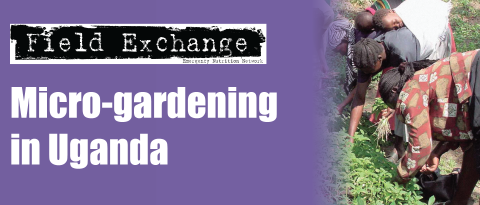European Emergency Food Security Group (EEFSG)
This overview of the EEFSG and report on the recent Dublin meeting was prepared by Niall Cassidy, Concern Worldwide, in consultation with the meeting participants.
Concord is the Confederation of European Relief and Development non-governmental organisations (NGOs). Its 18 international networks and 20 national associations from the European member states represent more than 1500 European NGOs vis-à-vis the European institutions. It attempts to enhance the impact of development NGOs at European level, by combining expertise and accountability and through presenting clear messages on trade and agricultural policy to influence the institutions and member state governments. Concord coordinates co-operation among NGOs in order to influence political debate and policy formulation on development and humanitarian issues at EU level and promotes the political interests of European NGOs as strategic partners of the EU and the Member States. It also strengthens the quality of NGO work, particularly regarding the relationship with civil society in the South; and contributes to capacity building at NGO level by stimulating new synergies based on sharing, co-operation and consultation.
The work of the Confederation is carried out by its members, who are split into specific working groups depending on their experience. These include groups on trade, aid, and the European Food Security Group (EFSG). The EFSG was convened by the European network, EuronAid, and is chaired by Tom Arnold, Chief Executive Officer of Concern and member of the Hunger Task Force of the UN.
The establishment of the EEFSG
At the beginning of 2005, the EFSG 'earmarked' the year as heralding in a critical period for the future of food security policy, given the World Trade Organisation (WTO) negotiations in Hong Kong, the reorganisation of EU budget lines, and developments within the World Food Programme (WFP). With these in mind, it acted decisively and swiftly in establishing a specialised task force on emergency food security issues, the European Emergency Food Security Group (EEFSG). The EEFSG is a small and focused group of food security and nutritional experts, drawn from NGOs with direct operational experience of emergency food security - Save the Children UK, Action Contre la Faim, Concern, Oxfam and German Agro-Action.
The ultimate objectives of the group are to influence policy debate and formulation at the highest levels, and to promote better practice and analysis of emergency food security situations - by both NGOs and international agencies. Though still in its infancy, the group has already played an important role this year in feeding into the WFPs new strategic plan, and has also established links with other key stakeholders in the field.
Dublin meeting
The EEFSG meets on average four times a year, with the latest meeting taking place in Concern's headquarters in Dublin on Wednesday September 7th 2005. This meeting was convened by the members in order to focus on a number of current key food security issues. In particular, the group addressed the increased promotion of School Feeding Programmes (School FPs) by international donors. In the discussion on School FPs whilst the members did not rule out the use of them completely, they did highlight a number of concerns they have:
- If School FPs 'attract' children to come to school in the short term, does the effect wear off in the medium to long terms.
- Some members felt that School FPs suffer from mixing nutritional and educational objectives, and in the process fail to address either as well as specialised programmes might do.
- It was suggested that real nutritional improvement could only arise as a result of an integrated package of support in terms of water, sanitation and health.
- Whilst School FPs might increase both enrolment and attendance rates, they fail to address the underlying question of education quality.
A previous DFID study made the point that the potential for catch-up growth among stunted school children is thought to be limited after two years of age, which supports the argument for early community intervention (ECCD) prior to enrolment in formal education. Furthermore, it was questioned whether the objectives of School FPs would not be better served by grounding them within programmes which addressed nutritional and educational issues within the community as a whole.
As there is a dearth of critical analysis of School FPs - making informed debate on the issue difficult, the group agreed to conduct further research and analysis of School FPs based on their respective organisational experiences, before coming to any definitive conclusions.
In the same meeting, the EEFSG also addressed the donation of food aid in the form of cash, given that it is being used by increasing numbers of NGOs. In particular, the impact of cash transfers on local markets and regional economies was discussed. At the moment, the group is monitoring a number of on-going cash transferring studies.
The group also went on to address the issue of food aid disciplines within the WTO and the Food Aid Convention, and the future of food aid from the EU. They discussed the possibility of developing a common position on food aid, and finding greater common ground with American NGOs.
The next meeting of the EEFSG is scheduled to take place in London on December 9th 2005.
For further information, contact Concord at email:secretariat@concordeurope.org
Imported from FEX website


